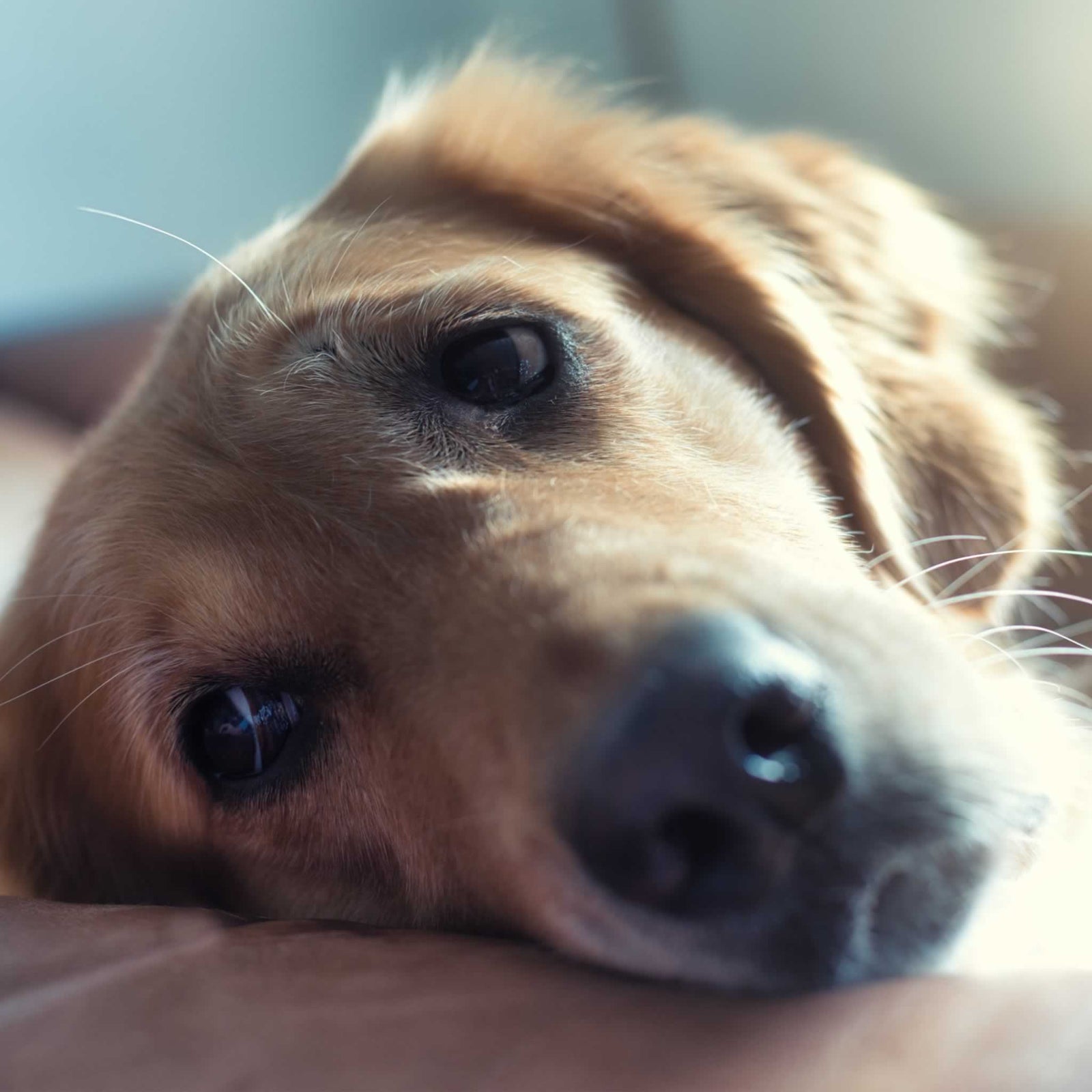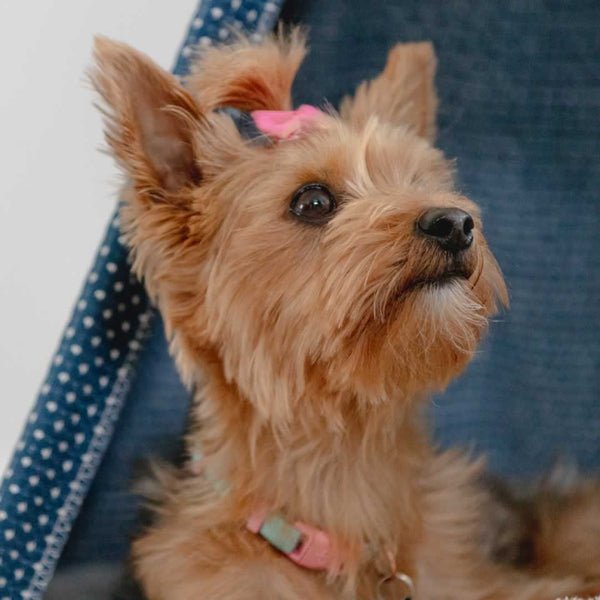Your Cart is Empty

Dog Anxiety: What Is It and How Can I Help It?
by Pickle J. Sniffington September 30, 2022 3 min read
Does your dog get stressed when you leave the house, or do you return to a home full of destroyed furniture and exploded cushions? Does your pet go nuts and greet you like you have been gone for weeks even though you just popped out to buy eggs?
If so, your pet may have dog anxiety, a condition that causes distress and behavioral problems. Common behaviors associated with dog anxiety include:
- Scratching
- Digging
- Chewing furniture
- Barking, howling or whining
- Defecation inside even though the dog is house trained
- Excessive licking
- Aggression
- Shaking or trembling
- Excessive panting
- Pacing and restlessness
- Loss of appetite
You can treat dog anxiety to make your pet’s life and yours more comfortable. Use these tips from our experienced team at Pickle & Polly.
Conditions that Cause Dog Anxiety
It's not fully understood why some dogs suffer from anxiety while others will behave perfectly fine under the same circumstances. Dogs that do have anxiety are exhibiting a panic response because they want their owners to come home, hear a loud noise, or experience some other trigger. Common scenarios that will trigger anxiety in a dog include:
- Left at home alone for the first time
- Going through a traumatic event, such as left in a kennel
- Accustomed to constant human contact
- A change in routine, a family member moving out, or the loss of another pet
- Loud noises
Treatments for Anxiety in Dogs
Discuss your dog's anxiety with your vet to rule out any medical conditions causing their behavior. The vet will rule out infections, hormone problems, or other conditions that may cause the dog to exhibit anxiety symptoms.
For mild symptoms, giving your dog a toy or treat every time you leave can help ease their concerns. Puzzle toys with treats will keep them occupied for a time but be sure to take the toy away once you return.
Is your dog bored from lack of activity and exercise? Exercising your pet for at least half an hour every day can reduce their stress levels.

Recognize Triggers
Certain triggers may set your dog off and recognizing what they are can help. For example, some dogs may stress out when you are vacuuming, have the TV up loud, or are using the mower or edge trimmer. Distracting your dog during their trigger moments can help.
Use a system called counter conditioning to form good associations with the dog’s triggers. Pat them when they show signs of stress or give them a dental chew while you use loud yard tools. Give them a tasty treat if a loud noise has set them off. Eventually, your dog will associate good feelings with their trigger.
You might be able to desensitize a dog that gets anxious when you leave. Go through the motions of leaving, such as collecting your keys, bag, and coat but don't physically leave. Avoid making a big fuss when you exit the house and keep your comings and goings low-key.
Ignore an over-excited dog until they calm down after you return home. Some owners have success with leaving out yesterday's outfit, so the dog gets some comfort from your scent while you are gone.
Dogs learn best from positive reinforcement, so avoid scolding them when they don't behave how you would like.

Try Supplements for Dog Anxiety
You may be ready to ask your vet for anxiety medication for your dog, but before you do that, some vets will recommend you try a few supplements. There are lots of products on the market that can help keep your dog calm, including:
- Phellodendron and Magnolia extracts
- Whey protein concentrate
- Alpha-casozepine
- Thiamine
You will need to be patient and consistent in your delivery, as it can take up to six weeks before you will notice results.
Join Our Furry Pals Program!
Subscribe to our newsletter for the latest news, access to new products, and exclusive discounts!

Join Our Furry Pals
Sign up to get the latest news on sales, new products, and more!

